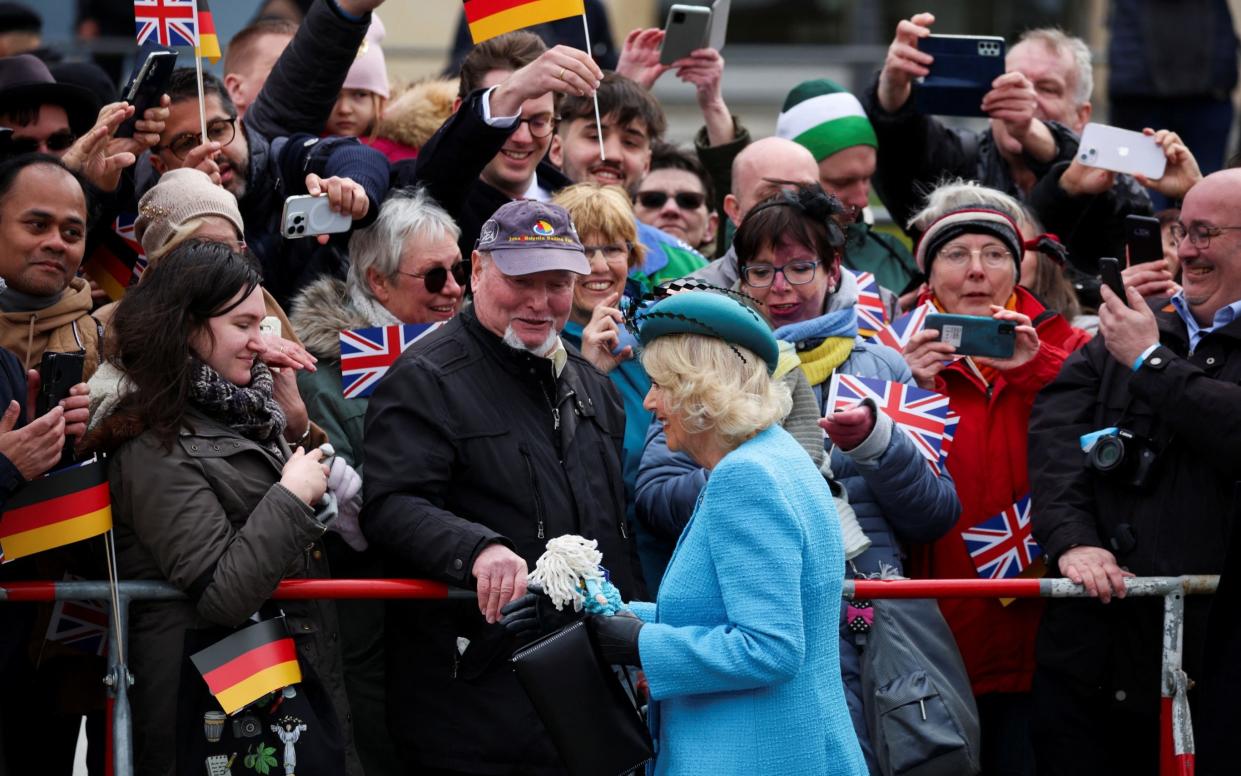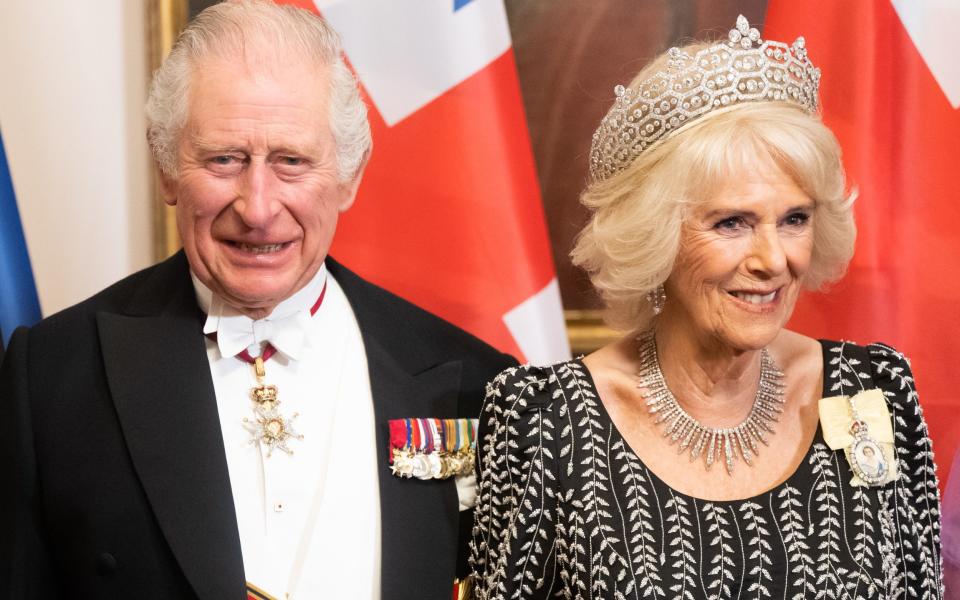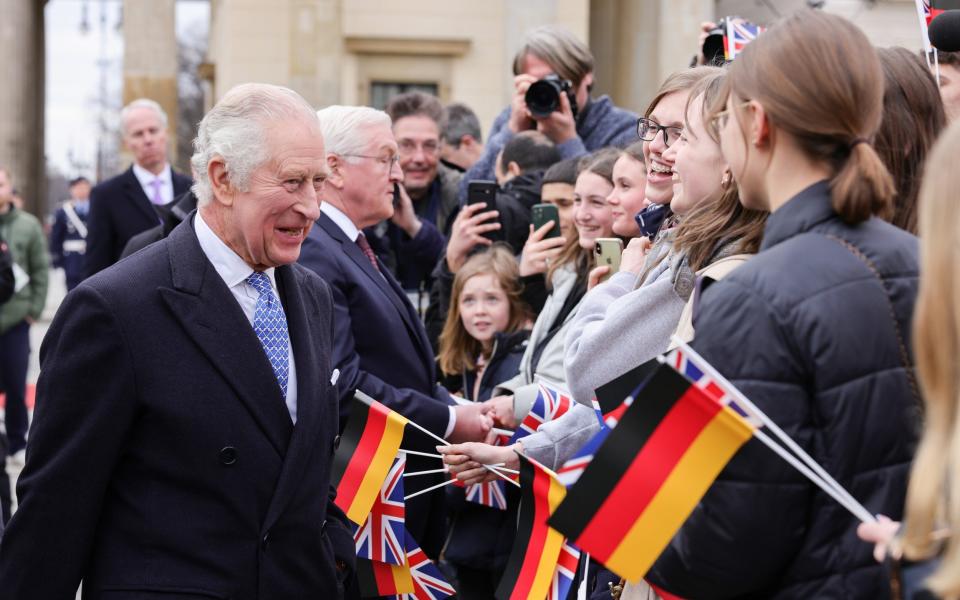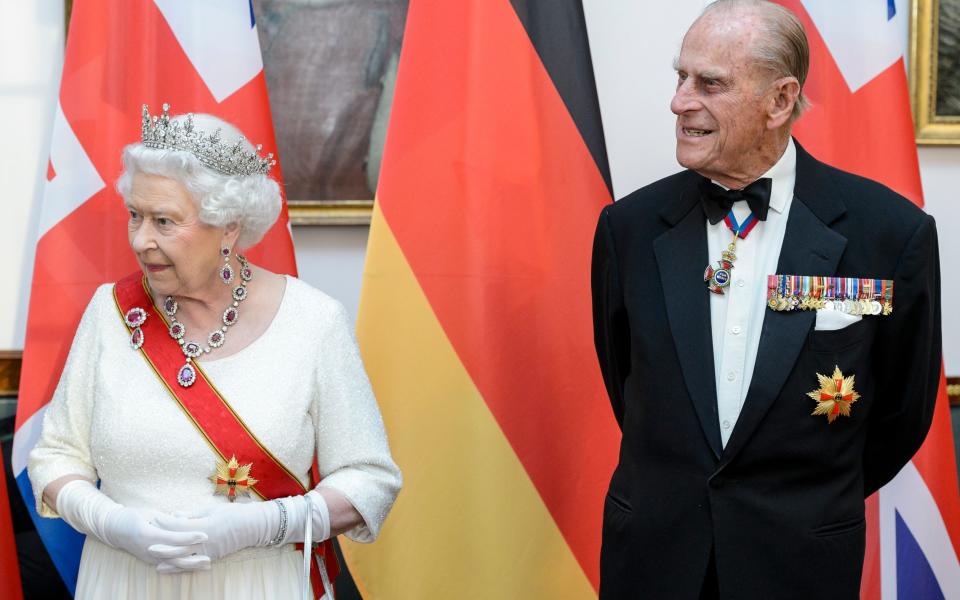Why Germans love the Royal family so much

King Charles and the Queen were greeted with enthusiastic crowds holding German and British flags on their state visit to Germany.
Newspapers such as the Berliner Zeitung and Süddeutsche Zeitung had even published helpful guides on royal protocol in case their readers met the King and Queen.
The tips included how to curtsey properly and how to correctly pronounce the word “Ma’am”, which the papers said should rhyme with “jam” and “lamb”.
But what is it about Britain’s Royal family that the Germans love so much?
Gerhard Danneman, professor of British studies, told the state broadcaster that Germany’s fandom for its “borrowed monarchy” had some very tempting advantages.
“In Germany you get all the pomp, glamour and celebrity status of the Royal family,” he told the state broadcaster, “without the politics or the expense”.
The House of Windsor’s German roots also play a part in their popularity in a country where the Kaiser, Queen Victoria’s eldest grandson, abdicated over a century ago after defeat in the First World War.
The British Royals were previously known as the House of Saxe-Coburg & Gotha after Victoria’s German husband Albert but changed their name during the First World War due to anti-German sentiment.
The fact that the King, who speaks German, is proud of his roots and is taking the time to meet and dine with his German cousins is sure to be appreciated in a country he has visited about 60 times.

King Charles “has never denied his German ancestry”, his distant cousin Prince Eduard von Anhalt told AFP. “Even if it is not very popular with many English people.”
But it is his mother, the late Queen Elizabeth, who must take most of the credit for the warmth of Charles’s welcome and the enduring affection for the Royal family in Germany.
Elizabeth II was so popular that Germans referred to her simply as “die Queen” using the English term rather than Konigin, the German word for queen.
Her death “caused the greatest dismay and sympathy in Hamburg,” the mayor of the city Peter Tschentscher said as he praised the state visit as “a strong political sign of the bond between Germany and Great Britain”.

The late Queen made herself a firm favourite of staff at the Adlon Hotel next to the Brandenburg Gate on her last visit.
King Charles and Camilla will be staying at the hotel, which named its Royal Suite after Elizabeth and still boasts a signed photo of her majesty and Prince Phillip above the mantelpiece.
As a member of the German-Danish House of Schleswig-Holstein-Sonderburg-Gluecksburg, her husband Philip had close ties to the country, where he also spent a large part of his time at school.
Ole Peterson, the concierge of the Adlon, raved about how “the English live for politeness”.
Adlon butler Ricardo Dürner said: “I found the Queen to be a very friendly and nice person.”
He said that with the British Royal family “nothing is left to chance. Everyone knows what they have to do and when. That’s just perfect”.

The affection between the late Queen and Germany was reciprocated, despite the young Elizabeth’s experience of the Blitz during the Second World War.
The late monarch described her 11-day state visit to Germany in 1965 - then still divided between West and East - as a “deeply moving experience” .
She was accompanied on a tour of West Berlin by then-Mayor Willy Brandt, who later became Chancellor.
The visit was widely seen as a sign of Germany’s postwar reconciliation 20 years after the horrors of Nazism and the Second World War.
After her death, Olaf Scholz, the Chancellor, praised her commitment to “German-British reconciliation after the horrors of World War II”.

 Yahoo News
Yahoo News 
